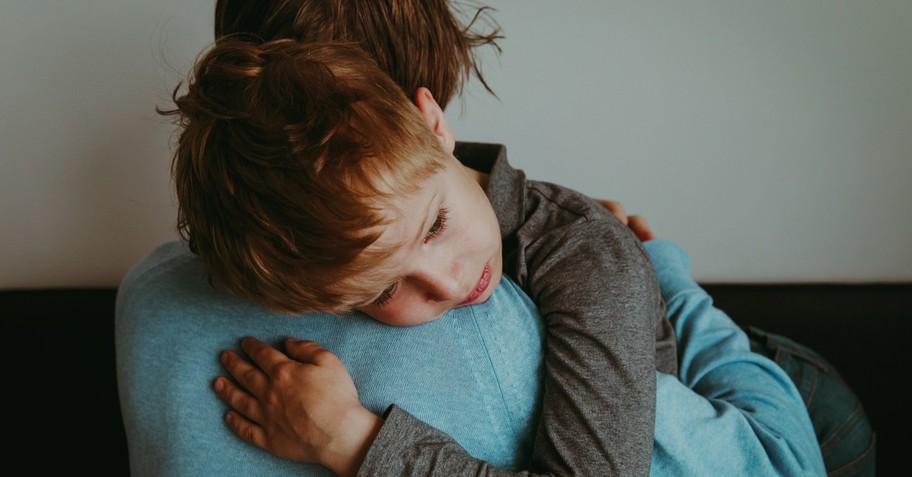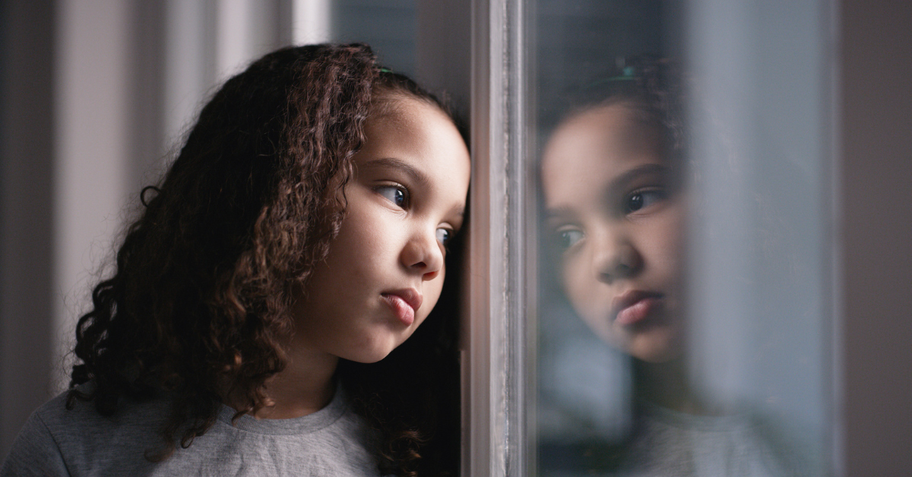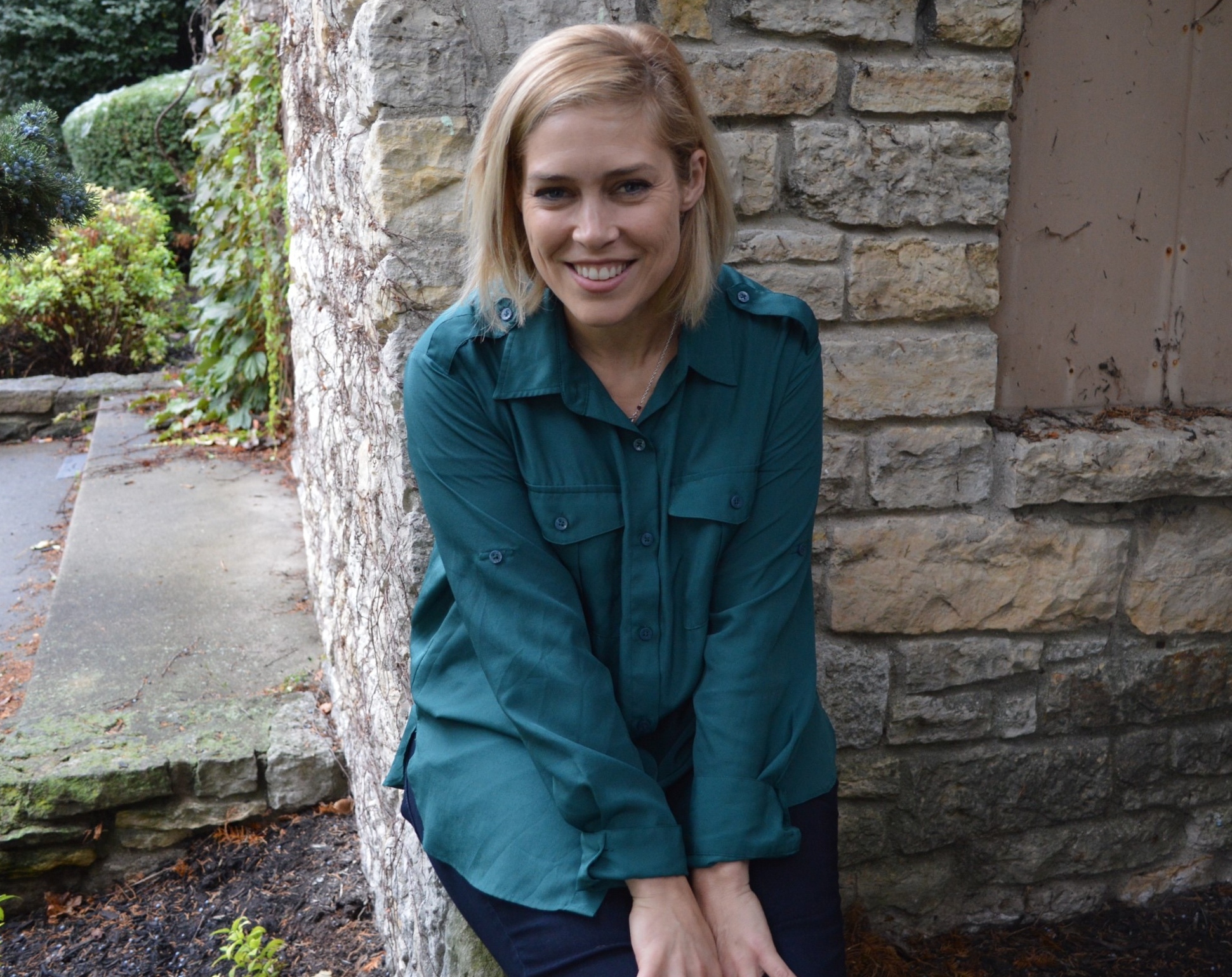How Foster Care Practically Shows Us the Gospel

The gospel — the story of God living a human life, giving up that life to defeat death, and rising up again as a human with a whole new kind of life — makes perfect sense out of foster parenting.
First off, in Christ, God’s love came alongside and inhabited our lives. He didn’t stand far off, at a safe distance, and attempt to fix the world’s problems with a zap of his miracle-working power. Rather, he choose to become human (John 1:14). Perhaps most surprising of all, when he picked out a human life for himself, he chose low social standing, poverty, and disdain (2 Corinthians 8:9; Isaiah 53:3).
What can this say to us about foster parenting?
Photo credit: ©Getty Images/Nastco

Fostering Requires Solidarity
Jesus becoming human answers some common, honest objections to the risks involved in fostering. It’s true that not everyone is cut out to foster children. But many who could be foster parents choose not to, and even though they may give other reasons out loud, the requirement for solidarity — for coming alongside — is a major hindrance.
It can be helpful to compare generosity with solidarity. Generosity is clearly a biblical, Christian act. We are called to give generously and cheerfully (2 Corinthians 9:7). Some people demonstrate generosity toward foster children by giving toys and clothes, or giving time in prayer or in helping friends who foster. This is needed.
God also calls us to solidarity. Where generosity stops at giving from a safe distance, solidarity participates fully in gospel love by living among people who are suffering and in need.
Jesus is a living example of solidarity — he literally has skin in the game.
This shift from generosity to solidarity makes all the difference in the world. We can be heavily involved in charity work without putting our skin in the game, without mourning with those who mourn, without being willing to both suffer and rejoice with others (Romans 12:15).
Do you remember the crowd gathered at the home of Mary and Martha when their brother Lazarus died (John 11)? Those people had gathered to mourn — I’m sure some of them knew Lazarus well and felt the grief of his loss. But they were also performing a ritual of solidarity. And Jesus did it too; he showed up to mourn. And then he turned over the table that death was dealing on and resurrected Lazarus. So he also rejoiced with those who rejoiced!
Foster parenting is a way to come alongside those who are suffering, and to rejoice with those who are celebrating.
Photo credit: ©Getty Images/Nadezhda1906

A Look at Our Story
It is challenging to describe what foster parenting is like because everyone’s story is irreplicable. Every family — both families fostering and families whose children are in the system — is radically different. Therefore, I can really only speak from my experience. My family of 6 (including our foster child) has been a foster family for 2.5 years, and the same child has been with us the whole time.
When our foster child first walked into our living room, we felt nervous and excited, grateful for the chance to serve him and also terrified at the unknown-ness of it all. Would he run into the kitchen, grab a knife, and try to hurt us (probably not, he was only 3 years old)? His behavior seemed perfectly natural — tenuous but also happy to see other kids. I sat on a low ottoman and the other kids sat on the floor playing. This new child came and stood very close to me, watching the kids play. In that moment, I did not feel magnanimous. I was not impressed with my own generosity. Instead, I felt immensely honored by this child’s trust. He was coming alongside me, and it has been my joy to come alongside him.
While we have plenty of struggles in the process (we are not “angels” as some say), they don’t compare to what our foster child and his mother are facing. It is no act of charity to care for a foster child. It is an act of solidarity.
When we are finding it difficult to stay the course, we remind ourselves of the injustice and evil that led to our foster son’s situation. For instance, one of my birth sons sometimes asks why he has to share a room with his foster brother. I’ll admit, our foster child has an insatiable hunger for attention, and he can be really annoying to the other boys, especially at night when everyone’s nerves are tired. I remind my birth son that, for starters, all little brothers are annoying sometimes (maybe a lot of times). But even more, every child should have a safe place to sleep at night. The safe place for our foster child to sleep is in our home.
Photo credit: ©Getty Images/Yurii Yarema

Fostering Requires Sacrificial Love
I want to stop for a moment to point out that it’s actually possible to foster without solidarity. You can provide a bed and meals to a child in exchange for payment from the state. You can keep that child at a distance emotionally because you don’t want to suffer too much if/when they leave. If things get too messy with them, you can send them back to the agency for them to find a “better fit.” You can tell all your friends about how awful the birth parents are and emphasize their failings. You can receive your reward up front in the admiration of others while maintaining boundaries on your suffering.
When we went through our training as foster parents, we learned that the average foster child will live in seven different homes during their time in care. That is an average, meaning some kids move far more often, and others far less. There are legitimate reasons to send a child back to the agency — sometimes it is with great grief and wisdom that a foster family says they can no longer care for a child. But too often foster families are moving children out to save their own skin.
Jesus did not save his own skin, and he invites us to give up ours too. “Greater love has no one than this: to lay down one’s life for one’s friends” (John 15:13). Solidarity is written into this familiar verse. The one you will give your life for is your friend — not a charity case.
Safety and wisdom, boundaries and pacing, and respite have their place — and so does suffering and death. Jesus didn’t give his life up without asking whether there was another way (Matthew 26:36-46). He wasn’t reckless or self-sabotaging. But he also didn’t set up boundaries to keep himself safe at the expense of the well-being of those he loved.
Foster parents have to make many tough calls. We might ask God, “Is there any other way?” And sometimes he will make a way where there is no way, and we will thank him and marvel at his ingenuity. Other times, we have to look him in the face and say, “not my will, but yours be done.”
Photo credit: ©Getty Images/Drazen Zigic

Don’t Give Up on Fostering Just Because of the Hard Parts
The number one reason people say they can’t foster children is that they couldn’t bear to say goodbye. I haven’t had to do this yet, but I have watched other friends do so. It will be traumatic for our whole family if/when our foster child has to say goodbye.
Your emotional health is important. If you are not well mentally or emotionally, or if your family is already carrying weight that you can hardly bear, it might not be a good time for you to sign up to foster. However, the general premise of the standard argument is not sound: just because you will suffer when they leave doesn’t mean you shouldn’t do it.
Jesus knew along all that he would die on the cross — or at least he knew for quite a while before it happened. He tried to tell his followers about it, but they assumed he would keep healthy boundaries and not go to Jerusalem if people were trying to kill him there (Mark 9:30-32). They assumed the suffering he referred to was metaphysical, symbolic. They were shocked when he actually died, even though he had told them that’s exactly what would happen.
Guess what else he told them — that he would rise again in 3 days! They didn’t believe it even when their friends told them it had happened (Luke 24:1-12). Again, they thought Jesus was being metaphorical when he predicted his victory.
Foster parenting is an invitation to suffer in real life, and for our old life to be abandoned in exchange for a new, wholly different kind of life. Of course, we try to keep everyone physically and emotionally safe — we care for ourselves and our birth children. Those questions of physical and emotional safety and well-being are not always easy to answer. But God invites us into his way of suffering alongside others — so the pain of saying goodbye should not be a deal breaker when considering foster care.
Coming alongside Those Who Suffer
Additionally, fostering is an act of solidarity with those who have been downstream of human and spiritual evil. According to this report, many kids in the foster system come from impoverished homes (47%). For reasons of poverty and racism – and the racism that leads to poverty – Black, Latino, and Indigenous kids are overrepresented in the system — meaning that the percentage of the kids in foster care who are Black, Latino, and Indigenous is higher than the percentage of those children in the general population. For instance, Black children make up 23% of those in foster care, but only 14% of the general population, reports Very Well Family.
People assume that foster parents are good parents and birth parents whose kids are in foster care are bad parents. But many factors lead to the state deciding that birth parents are neglecting or abusing their children. If we come alongside these parents, we can’t help but see that most are not starting from the same place as us — they may not have had the stable family, the economic opportunities, or the safe neighborhood that enabled many of us to thrive.
Foster parenting is a way to live in solidarity with families who are experiencing poverty and abuse, racism, and other kinds of evil. We can follow Jesus into a life that comes alongside and suffers with those who suffer.
Photo credit: ©Getty Images/AlexanderFord

Rejoicing with Those Who Rejoice
And, like Jesus, we can rejoice with those who rejoice. Becoming someone’s parent — whether temporarily or permanently — means you look into the glorious future for that child and see what only God could make true. We do this with biological children — we wonder what their personality will be like, what jobs they will have, what hopes and dreams will be fulfilled in them. Being a foster parent means you get to believe in someone’s future.
Watching our foster kids succeed in school, make healthy friendships, bond with loving adults, restore relationships with their birth parents, discover their God-given gifts and strengths and desires — all of this elicits heavenly celebration. And that rejoicing is ours as well.
Ultimately, because we come alongside families with children involved in the system, we get a first-row seat in God’s work in their lives. We can pray for them in ways that we never could if they were just a statistic or a loose acquaintance. We can believe for the whole family that God’s kingdom will come and his will be done in their lives. This is no rosy optimism. It is anchored in the life that Jesus lived after he died.
Foster parenting makes perfect sense in light of the gospel. There’s nothing easy or simple or quaint about it. But there is security, strength, and hope in the knowledge that anywhere we go, any suffering we endure, any hope that we hold out, Jesus will come alongside us there.
Photo credit: ©Getty Images/evgenyatamanenko
Originally published May 29, 2023.









